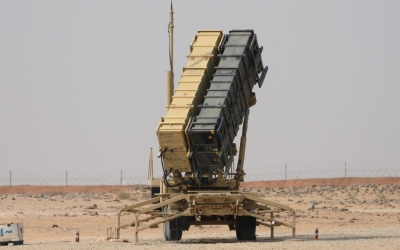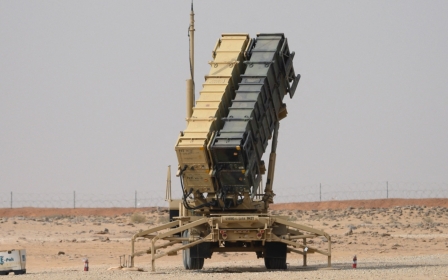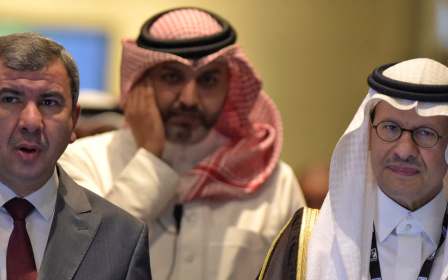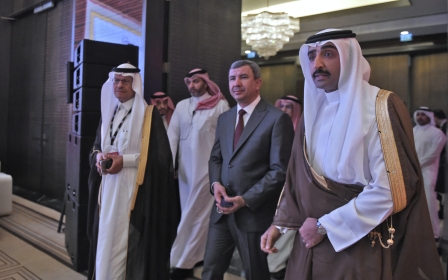Opec+ oil cut: Are Saudi Arabia and UAE testing the limits of a new world order?
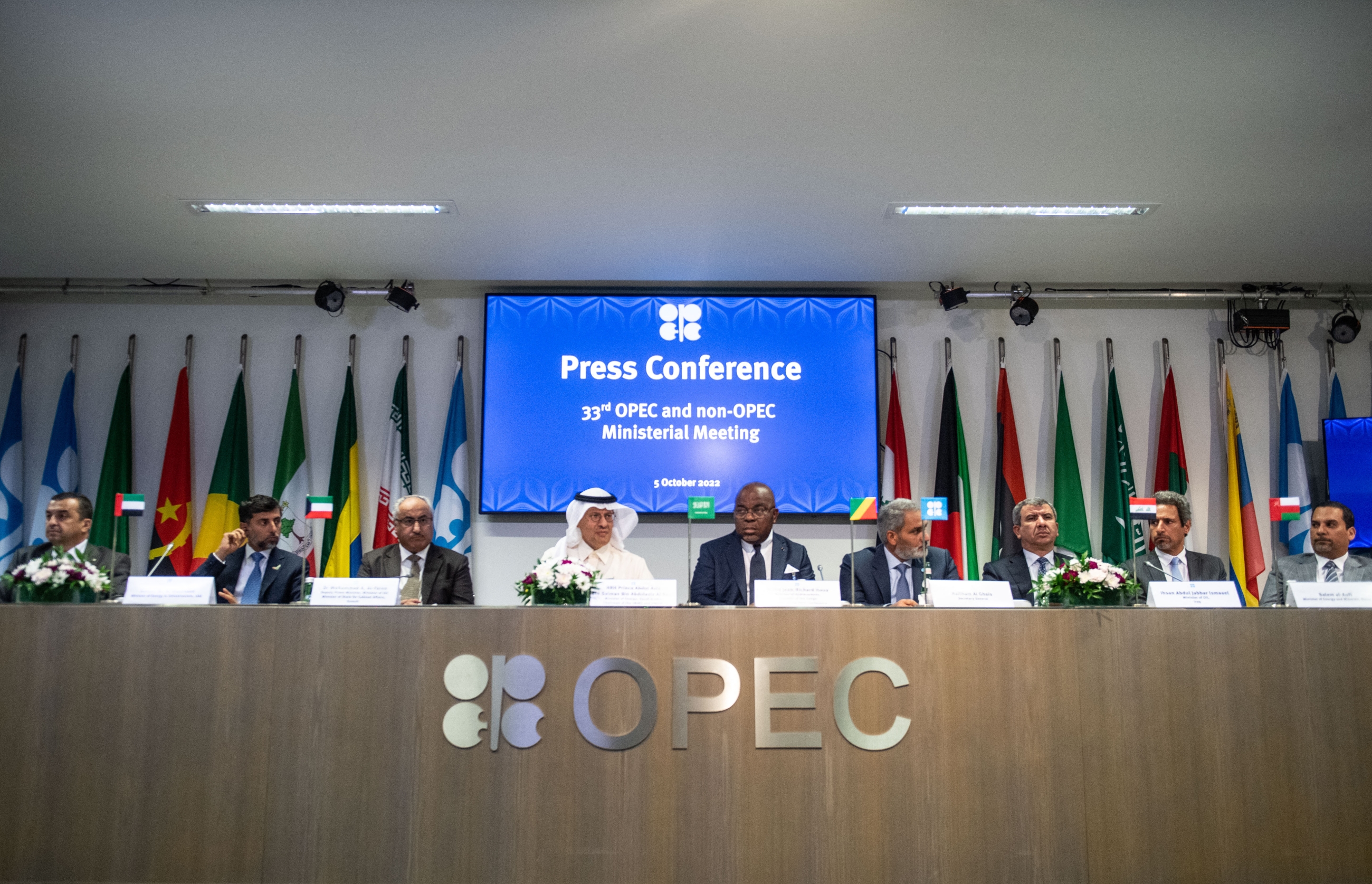
On 5 October, Opec+ members announced a plan to cut oil production targets by 2 million barrels, starting in November, the first major cut since 2020.
With an effective cut of less than half of this, the oil markets have mostly shrugged it off, strengthening only modestly. The actual market impact of the cut will be less than the announced headline cut.
While claims that the Saudis and Emiratis and the rest of Opec+ are biased towards Russia seem overstated, it is clear that they are not shunning them
As many members of the group are already under-producing their targets, the net production cut is likely to be between 600,000 and 900,000 barrels a day, non-negligible given the recent trends, but not as extensive as the headline.
However, the impacts of the cut on energy politics and US-GCC and West-GCC relations are much greater. This decision adds to the distrust between these major economies over energy policy and reduces resilience to the looming issue of Russian fuel supplies and longer-term issues about energy transition and investment.
Beyond the cut itself is the political and geopolitical posturing surrounding the announcement, which highlights increased fragility and volatility of the market ahead of a planned EU embargo and G7 price cap on Russian oil.
New MEE newsletter: Jerusalem Dispatch
Sign up to get the latest insights and analysis on Israel-Palestine, alongside Turkey Unpacked and other MEE newsletters
Sluggish demand
Despite their attempts to focus on the "technical" nature of the decision, both Opec+ ministers and the US did little to de-escalate - meaning that the partly economic and commercial reasons for the cut, including sluggish demand around the world, were lost amid a sea of recriminations and concerns about the future.
On the demand side, Opec+ cuts reflect concerns about sluggish global, and especially Chinese, demands, which remain constrained by selective Covid lockdowns, weak consumer demand and property market woes.
Signalling this cut through the end of 2023 implies a major reversal of the prior Opec view that strong demand would boost the call on Opec oil next year.
In large part, disappointments continue to come from China, where Zero-Covid policies continue to depress domestic demand and mobility, and property market woes restrict other parts of domestic demand.
Given some demand destruction earlier this summer, some degree of cuts reflect fundamentals even if prices are far from low. Oil producers put some of the blame on other parts of the energy complex including sharp rises of natural gas prices which are exacerbating weak global demand.
With central banks forced into more defensive hiking, including in developed economies, the risk is that the global slowdown will be more extensive, also hitting oil demand.
Overall, they continue to prefer higher costs for lower volumes, especially as many countries lack the flexibility to scale up. Faced with potential declines in revenue after a strong beginning to 2022, they have opted for prioritising higher costs per barrel versus market share.
Keeping Russia in
The argument that a higher price would prompt more investment within Opec+ countries seems less realistic given that the issues on scaling up supply seem far from purely economic. They include domestic issues in a number of producing nations as well as a rising domestic demand in Africa.
Some Opec+ members, especially the UAE, have added to a capacity that remains well in excess of production, and some non-Opec countries like the US are also adding supply as the commercial arguments dictate, but those are more compelling for natural gas.
The meeting reinforced the preference of Opec leaders, especially those in the GCC, to have Russia inside the group rather than outside, potentially acting as a spoiler.
This reflects lessons learnt in the Asian financial crisis and global financial crisis, preferring to keep the major producers aligned.
Moreover, they are also signalling their unwillingness to make the G7 effort to squeeze out Russian oil easier. Unlike smaller countries like Iran and Venezuela, there is far from enough spare capacity globally to replace meaningful volumes from Russia.
The continued sanctions on those two countries also raise concern. While additional volumes would not be welcome now, the continued western use of sanctions to restrict energy supplies remains a concern for producers.
The US continues to expect that security relationships mean support with foreign and economic policy objectives, but that relationship is likely to worsen
While claims that the Saudis and Emiratis and the rest of Opec+ are biased towards Russia seem overstated, it is clear that they are not shunning them.
These are one of several economies looking to maintain their ties with both Russia and the US and are willing to operate in the grey areas, engaged in trade and financial flows which don't directly violate US sanctions but are risky and could be subject to future restrictions.
This includes a decision to hold on to investments and joint ventures in Russia rather than exit, despite complicity in its war. It also includes increasing its role as a transshipment location on the part of the UAE.
For India and Turkey, trade with Russia has increased. Much of this trade is still legal but tough, and these countries will face more pressure to abide by widening G7 export controls.
Relations with the US
The producers' cartel has little interest in facilitating the creation of a buyer-originated tool to set prices, especially not one that could be used for other geopolitical aims. Moreover, they are also worried about the uncertainty of putting in motion a set of new compliance and due diligence which might add additional costs to the market.
The G7 approach to the cap leverages the current dominance in insurance and other services for the oil trade. New players are likely to emerge to provide at least some of these insurance services.
Despite their distrust of the price cap, Opec+ members with capacity are likely to seek to take advantage of the arbitrage, buying fuel at a discount from Russia and selling other cargos on the global markets at higher prices. The potential of a formal mechanism remains a concern however.
Yet, this decision only brings to the surface some of the grievances and disputes that have been building for some time. Many Opec+ members, especially in the GCC, feel vindicated that EU and US energy transition goals would lead to underinvestment in energy.
They were also concerned about the power of using the Strategic Petroleum Reserve (SPR) and had a greater interest in hedging and maintaining a less overt alignment to the West.
Meanwhile, the US continues to expect that security relationships mean alignment and support with foreign policy and economic policy objectives. But the relationship is likely to worsen and be perhaps more transactional on areas of actual common interest.
The noise out of Washington about reshaping the relationship will only increase with discussions about weapons sales, using anti-trust tools on Opec and regional policies.
Major course corrections are unlikely, however, as the US has prioritised its efforts to weaken the Russian government and its military capacity to stop its conflict in Ukraine, in addition to its focus on competition with China.
While the GCC and the broader West Asian peers are increasingly hedging and finding their way in a no longer unipolar world, they will test these limits.
Non-Opec energy producers like Qatar may also see their position elevated, even though they, too, are hedging and seeking the best opportunities for energy and non-energy development. These trends are likely to add volatility not just to oil markets but also to geopolitics, increasing the risk that blunt tools like secondary sanctions will be used.
The views expressed in this article belong to the author and do not necessarily reflect the editorial policy of Middle East Eye.
This article is available in French on Middle East Eye French edition.
Middle East Eye delivers independent and unrivalled coverage and analysis of the Middle East, North Africa and beyond. To learn more about republishing this content and the associated fees, please fill out this form. More about MEE can be found here.



